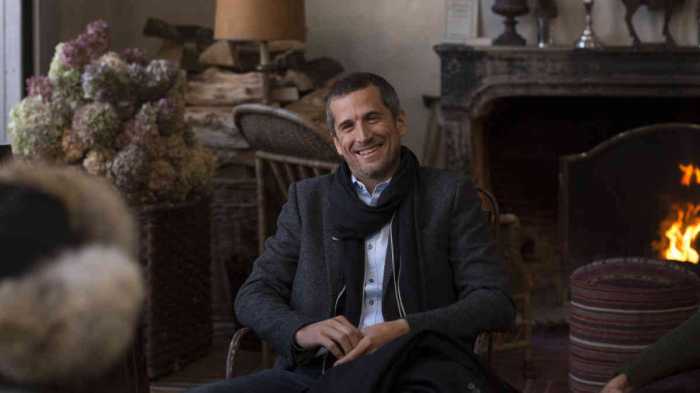Félix de Givry in Mia Hansen-Løve’s “Eden,” co-written with her brother Sven Hansen-Løve. | CG CINÉMA
BY STEVE ERICKSON | “Eden” is the story of 20 years in the life of a house music DJ, inspired by the biography of its co-writer Sven Hansen-Løve, whose sister Mia directed it and wrote the script with him. But it could be the life of anyone who pursues their passion beyond reasonable limits, without thinking about the future.
Paul (Félix de Givry) discovers the rave scene of Paris as a teenager and forms a DJ duo called Cheers with a friend. They specialize in the garage style, which combines mechanical electronics and soulful, disco-inspired vocals. Meanwhile, their acquaintances form a group called Daft Punk. In the real world, Daft Punk achieved huge success and crossed over to a wide audience; toward the end of “Eden,” Paul meets a young woman who says Daft Punk is the only electronica group she listens to. But in the movie, they have trouble getting admitted into nightclubs because they always wear robot costumes onstage and no one knows what “Thomas and Guy-Man” really look like.
Paul and his friend Stan (Hugo Conzelmann) start their own parties. They form a wide circle of friends: artist Cyril (Roman Kolinka), passionate “Showgirls” fan Arnaud (Vincent Macaigne), and a revolving door of girlfriends. (Paul can’t seem to stay with a woman more than a year or two.) A literature student, Paul devotes little time to school once he discovers garage music. And why would he? He gets to travel to America, DJing at PS1 and meeting legendary DJs in Chicago. Cheers try to start its own record label, but the pair wind up losing money.
When dedication to art surpasses a nose for where the money’s headed
The first part of “Eden” is called “Paradise Garage,” the second part “Lost in Music.” If you sense some value judgments in those titles, you’re not off the mark. “Eden” is almost as good as Richard Linklater’s “Boyhood” at capturing a sense of time passing while its characters are busy living their lives. It jumps forward in time, a few years at a stretch, several times, but the stasis of Paul’s life remains a constant. We don’t have to wonder what he was doing in the years “Eden” leaves offscreen.
The world of “Eden” is largely new to me. After hearing the debut albums by the Orb and Aphex Twin in 1992, I started listening to electronic dance music, but I’ve never really heard garage and I went to a grand total of one rave. The early scenes show a culture that hasn’t yet become commodified. At raves, people sell fanzines with artwork and interviews with famous DJs. The first one Paul attends takes place on a submarine. He approaches the DJ and asks what song he played; the DJ isn’t too ego-driven or afraid of competition to respond. While Paul’s mother reads him a newspaper article about the dangers of ecstasy, cocaine is his drug of choice and he graduates from occasional use to a habit that lands him in debt over the course of the film.
I’m not the first person to make a connection between “Eden” and the Coen brothers’ “Inside Llewyn Davis.” Both films are about people left behind by the culture of their times — the official culture and even (or especially) the counterculture. “Inside Llewyn Davis” ends with an appearance by Bob Dylan, who would revolutionize the early ‘60s folk music scene and render performers like Davis to the dustbin of cultural history. Daft Punk does something similar with Cheers. Paul remains loyal to his love of garage, even as new styles of dance music emerge and audiences move on. One nightclub owner suggests that he try playing electro instead. Ironically, Daft Punk ended up finding its greatest success with an album that eschewed electronics and looked back to funk and disco, giving up the futuristic feel of its earlier work.
Paul has a lot of fun in “Eden,” especially in the first half. Hansen-Løve’s use of handheld camerawork and Denis Lenoir’s nocturnal cinematography in crowded clubs bring out the hedonistic aspects of the rave scene. However, it’s also true that Paul never makes more than just enough money to support himself. (Obviously, this isn’t helped by his coke habit, but that’s not the sole reason he’s broke.) “Eden” isn’t exactly a cautionary tale, but it’s a sad one. It takes 20 years for Paul to realize that he’s never going to make money as a DJ or music producer. You could apply the lessons he learns to most artistic endeavors.
EDEN | Directed by Mia Hansen-Løve | In French with English subtitles | Broad Green Pictures | Opens Jun. 19 | IFC Center, 323 Sixth Ave. at W. Third St. | ifccenter.com



































